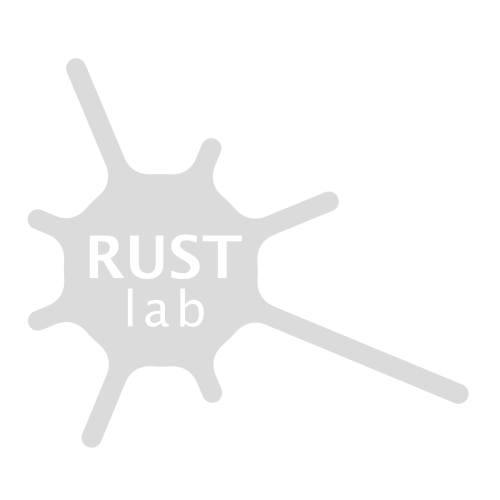“That’s not quite the stool sample we had in mind”: About concepts and their currency in eHealth
Comment by Estrid Sørensen
The conceptual genealogy of digital health literacy unfolds in a scheme of three waves. The first wave of health literacy is characterized by a top-down views of patients, seeking to disseminate expert knowledge and values to non-expert patients. The second wave critiques the first for being paternalistic and insists on empowering patients; the aim of health literacy cannot be that patients simply obey doctors. Health literacy is in this wave an asset for patients to gain greater control of their own health. The third wave questions the framing of health literacy within medicine. Indeed, to most people disease intervenes into their everyday life and is not just about managing medical contexts, but very much about managing life.
Sebastian Merkel, sociologist and professor of eHealth at the Ruhr-University Bochum explained the three conceptual waves of (e-)health literacy in his January RUSTlab lecture. He started out by presenting a cartoon by G.A. Mendenhall. It shows a nurse sitting arms crossed at the reception desk of a test laboratory. In front of the desk stands a man lifting a bar stool towards her. The caption reads “that’s not quite the stool sample we had in mind, Mr. O’Donnell”. In his slide, Merkel had drawn a red circled around Mr. O’Donnell indicating that the concept of eHealth literacy – like health literacy in general – too often attends isolated to the patient’s ability to understand health information. And moreover, it does so in a derogative way, based on a deficit model of the patient. The third wave seeks to go beyond this view by attending to health literacy as reaching out beyond the medical situation.
In our inquiry into experimentalist data studies literacy is obviously a concept of interest. Quite like health literacy, data literacy is often based on a deficit model of the data user or data reader. The typical STS interest in the competencies users mobilise when engaging with data or health practices, regardless which competencies are expected from them, are not of concern in discussions of literacy. Literacy points to “people’s knowledge, motivation and competences to access, understand, appraise, and apply health information” (Sørensen et al. 2012, p. 5, emphasis added). Health literacy is about information that is delivered by the health care system to the patient or that is transferred from the patient to the health system. The term has been extended in later discussions to also include skills to handle contextual information (Gilstad, 2014) and even skills to interact with the health care system (Nørgaard et al., 2015).
Merkel’s approach to discussing the conceptual waves of health literacy was to engage with European Health Literacy Surveys from 2009-2012 and from 2019-2021. The surveys were conducted in 17 European countries and asked respondents to assess their skills and abilities in relation to a large number of health-related questions. Merkel inquired the notion of literacy inscribed into these surveys and emphasised that they are dominated by a cognitivist, universalist, and paternalistic view of patients as rational information-processing individuals and of medical services as unquestionably positive. The problem of this view, Merkel emphasised, is that it transfers the burden of ensuring good health communication to the patients. Most of the population are considered health illiterate. This is certainly the case in Germany, where more respondents than in other countries found it “difficult” or “very difficult” to understand medical advice.
Merkel emphasised the epistemic ecology of this view: Politicians ask for easy consumable information, which is most often quantitative results. Such results require surveys as the ones discussed. Regardless of the questions asked, a rational information processing respondent is already inscribed into the survey designs. Notions of health literacy that also involve the health care system’s ability to communicate with patients, and even an understanding of literacy as a collective achievement, are more difficult to measure in surveys. Ethnographic studies would be more useful for this, but their results tend to be of a more complex kind that are difficult to translate into political measures. Merkel’s way out of this seemingly catch-22 situation is noteworthy. He suggested that rather than aiming for delivering research results that have political currency, it is worth producing research whose currency is relevant for technology development. How can more relational and practice-oriented notions of eHealth literacy be inscribed into health apps, electronic patient records, or other health apparatus?
The question about how social science research can help inscribing alternative concepts of patients or users into digital technologies is not only important for eHealth literacy, but indeed for experimentalist data studies. Moreover, it is worth noticing the epistemic route through which this question was formulated: it inquired critically into existing concepts of literacy, into how they are translated into scientific measurements and what currency they have in politics. This attention to how concepts, research methods and politics are mutually entangled in eHealth was extremely enlightening and may work well as a model for experimentalist data studies.
References:
Gilstad, H. (2014). Toward a Comprehensive Model of eHealth Literacy. In E.A.A. Jaatun, E. Brooks, K.E. Berntsen, H. Gilstad, & M.G. Jaatun (Eds.), Proceedings of the 2nd European Workshop on Practical Aspects of Health Informatics (pp. 63-72).
Norgaard, O., Furstrand, D., Klokker, L., Karnoe, A., Batterham, R., Kayser, L., & Osborne, R. H. (2015). The e-health literacy framework: a conceptual framework for characterizing e-health users and their interaction with e-health systems. Knowledge Management & E-Learning, 7(4), 522-540.
Sørensen, K., Van den Broucke, S., Fullam, J., Doyle, G., Pelikan, J., Slonska, Z., & Brand, H. (2012). Health literacy and public health: A systematic review and integration of definitions and models. BMC public health, 12(1), 1-13.
